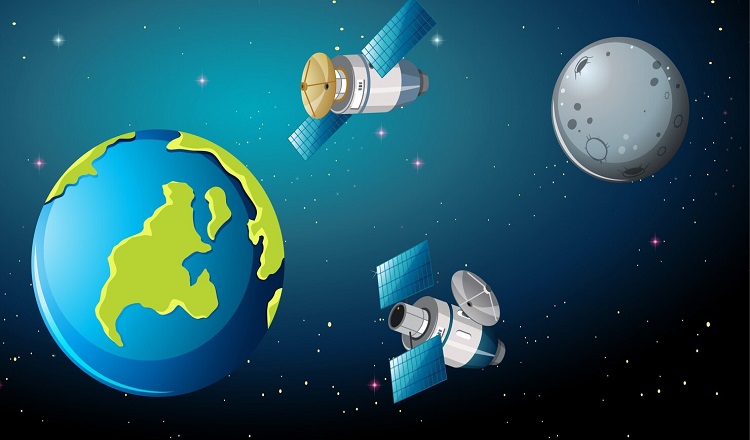Space exploration has always been a fascinating subject, capturing the imaginations of people across the globe for generations. While some may argue that space exploration is nothing more than an expensive hobby, the truth is that it has a significant impact on our everyday lives, particularly in the United States. From technological advancements to economic benefits, space exploration has contributed to the betterment of our society in countless ways.
As we look back at the history of space exploration, we can see the United States’ significant role in its development. From launching the first man on the moon to constructing the International Space Station, the United States has been at the forefront of space exploration for decades. The U.S. government’s investment in space exploration has not only pushed the boundaries of human knowledge but has also provided numerous benefits to the nation and the world as a whole.
In this blog, we will explore the many benefits of space exploration for the United States and the Earth. We will delve into the technological advancements that have emerged from space exploration and how they have shaped our lives. We will also discuss the economic benefits, scientific discoveries, environmental benefits, and national security contributions of space exploration. Finally, we will take a look at the future of space exploration and the exciting developments that lie ahead. So, let’s strap on our spacesuits and blast off into the cosmos to explore the fascinating world of space exploration!
Technological Advancements
Space exploration has not only broadened our understanding of the universe but also revolutionized our daily lives with groundbreaking technological advancements. The development of satellite communication and navigation systems has been one of the most significant technological achievements stemming from space exploration. These systems have enabled us to communicate with people across the globe and navigate accurately from one place to another.
In the United States, satellite communication and navigation systems have become an integral part of various industries, from agriculture to transportation. These systems have made it possible to track shipments, monitor weather patterns, and provide emergency services with more precision and efficiency. Additionally, satellite communication has enabled people in remote areas to access the internet, allowing for greater access to education and healthcare. In short, the technological advancements resulting from space exploration have significantly benefited the United States and its citizens, making our lives easier and more convenient.
Economic Benefits
The economic benefits of space exploration extend far beyond the development of new technologies. Space exploration has also created numerous job opportunities and spurred the growth of new industries. For example, NASA’s space program has created jobs in fields such as engineering, computer science, and aerospace manufacturing, providing employment opportunities for millions of people across the United States.
Furthermore, space exploration has also led to the development of new industries, such as space tourism and asteroid mining, which have the potential to generate significant revenue for the U.S. economy. Additionally, the development of new technologies resulting from space exploration has also stimulated economic growth by creating new markets and increasing productivity in various industries. In short, space exploration has played a crucial role in the U.S. economy, creating jobs, fostering innovation, and driving economic growth.
Scientific Discoveries
Space exploration has not only expanded our understanding of the universe but has also led to numerous scientific discoveries that have had a profound impact on our knowledge of Earth. For instance, through the use of sophisticated technologies such as telescopes and space probes, scientists have discovered exoplanets, planets outside our solar system, and learned more about Earth’s natural processes.
These discoveries have provided us with new insights into the formation of our universe, the evolution of life on Earth, and the factors that influence our planet’s climate. The technologies used to explore space have also led to significant advancements in scientific research, enabling us to study Earth’s climate, monitor natural disasters, and explore the depths of our oceans. In summary, space exploration has been instrumental in advancing scientific research and providing new discoveries that have revolutionized our understanding of the universe and our planet.
Environmental Benefits
Space exploration has had a significant impact on our ability to monitor and protect the environment. Satellites and other space technologies have been used to track climate change, monitor natural disasters, and collect valuable data on Earth’s ecosystems. This information has been instrumental in helping the United States and other countries make more informed decisions about environmental policy.
For example, data from space-based sensors have been used to track the depletion of the ozone layer and to monitor air and water pollution levels. These technologies have also been used to predict and respond to natural disasters, such as hurricanes, earthquakes, and wildfires, allowing for more effective disaster management and response.
Furthermore, space technologies have been used to study the effects of climate change on Earth’s ecosystems, providing policymakers with critical information to make informed decisions about environmental policies. In short, space exploration has played a crucial role in monitoring and protecting the environment and helping the United States make more informed decisions about environmental policy.
National Security
Space exploration has played a vital role in national security by providing the United States with advanced technologies for communication and surveillance. Satellites and other space-based technologies have been used for a range of defense purposes, including monitoring potential threats and gathering intelligence information.
The United States has used space exploration for national defense purposes, such as developing missile warning systems and advanced surveillance technologies. These technologies have enabled the United States to detect and respond to potential threats more efficiently and effectively.
Additionally, space-based communication technologies have been crucial in facilitating communication between military personnel and coordinating military operations. These technologies have also been used to track and monitor maritime traffic and to detect potential cyber threats.
In summary, space exploration has provided the United States with critical capabilities for national defense, enabling the country to monitor potential threats and respond to them more efficiently and effectively.
Future of Space Exploration
The future of space exploration holds tremendous potential for the United States. With ongoing projects and initiatives like NASA’s Artemis program, the United States is poised to continue making significant advancements in space exploration.
The Artemis program aims to land the first woman and the next man on the moon by 2024, with the long-term goal of establishing a sustainable presence on the lunar surface. This initiative will not only advance our knowledge of the moon but will also provide opportunities for the development of new technologies and the exploration of deeper space.
Furthermore, the future of space exploration will undoubtedly lead to more technological advancements, scientific discoveries, and economic benefits for the United States. Space exploration will continue to provide us with new insights into the universe and our place in it, and its potential benefits are limitless.
In summary, the future of space exploration in the United States is bright, and continued investment in space exploration will undoubtedly lead to more advancements that will benefit both the United States and the world.
Conclusion
In conclusion, space exploration has brought about numerous benefits to the United States and the Earth as a whole. From technological advancements to scientific discoveries, space exploration has provided us with new insights into the universe and our place in it. It has also contributed significantly to national security, environmental protection, and the economy.
Technologies developed through space exploration have brought significant advancements in satellite communication and navigation systems, which have benefited various industries in the United States, including transportation and agriculture. Space exploration has also led to the creation of new jobs and industries, boosting the economy.
Moreover, space exploration has helped us to better understand Earth and our environment. Technologies used in space exploration have enabled us to track climate change, monitor natural disasters, and protect the environment, helping the United States make more informed decisions about environmental policy.
In summary, the benefits of space exploration are numerous, and its importance cannot be overstated. Continued investment in space exploration will undoubtedly lead to more advancements that will benefit both the United States and the world.











